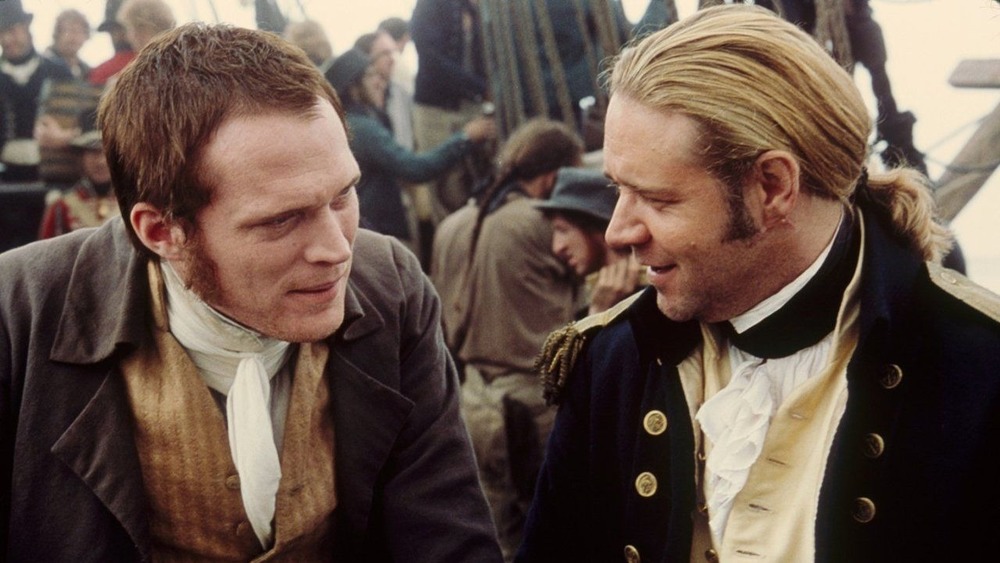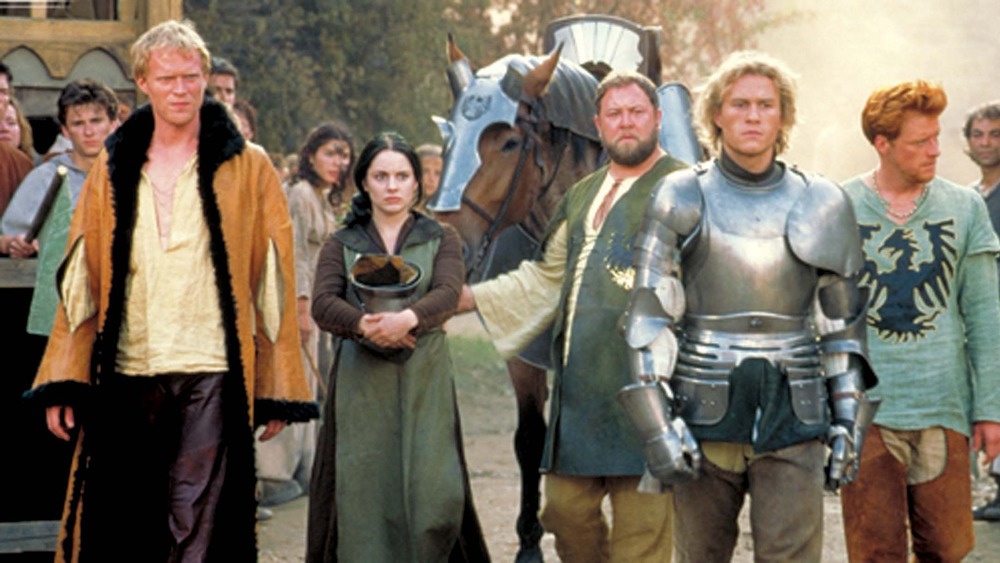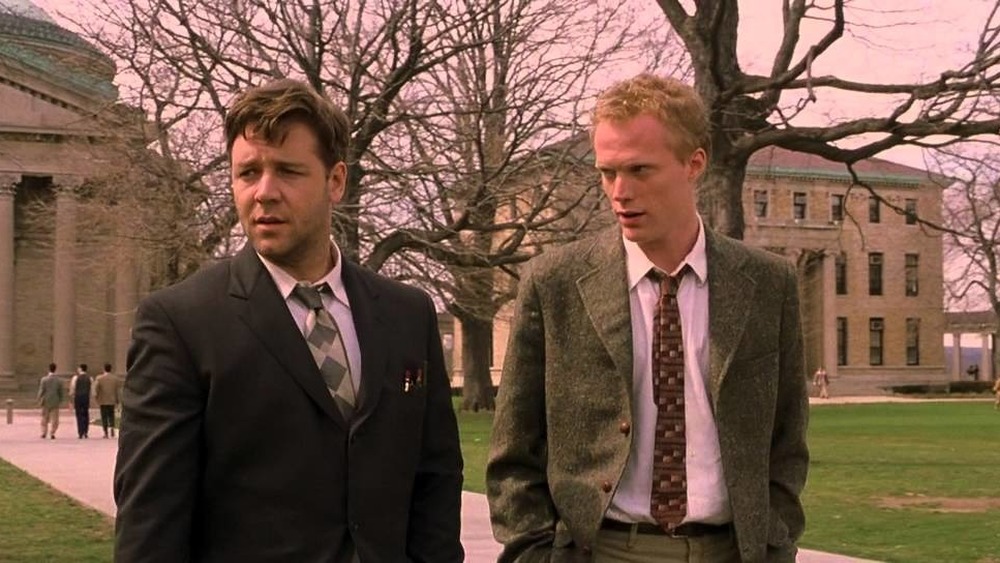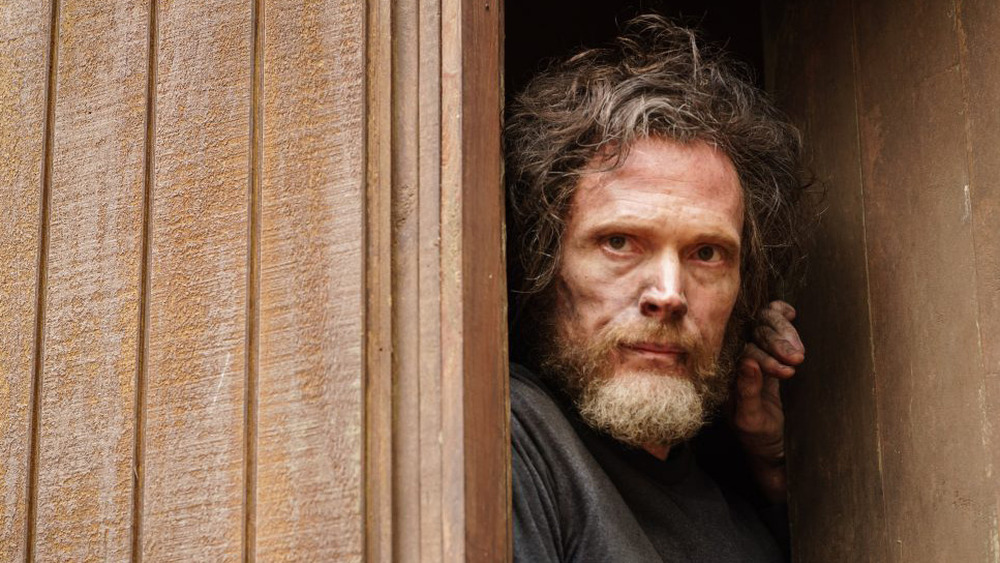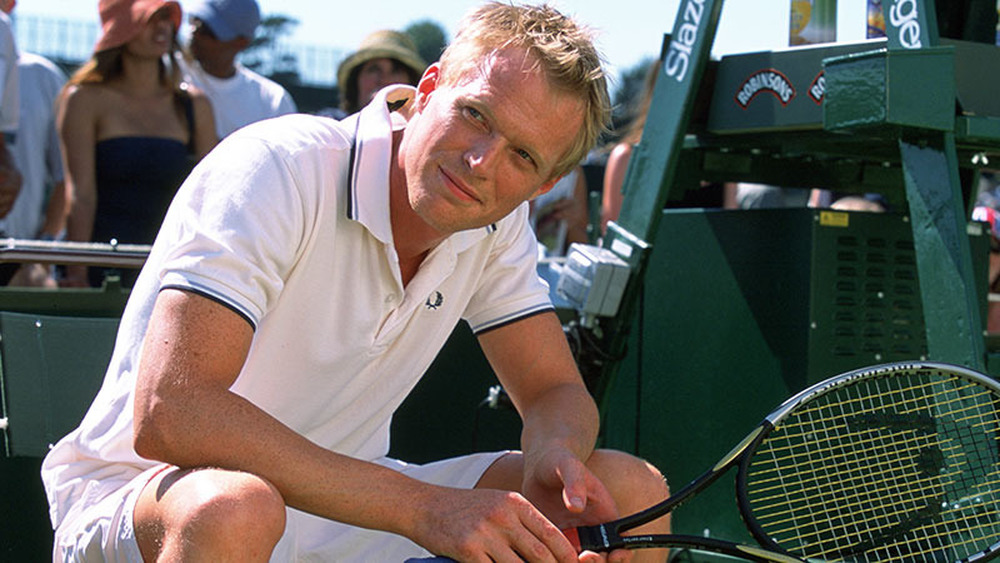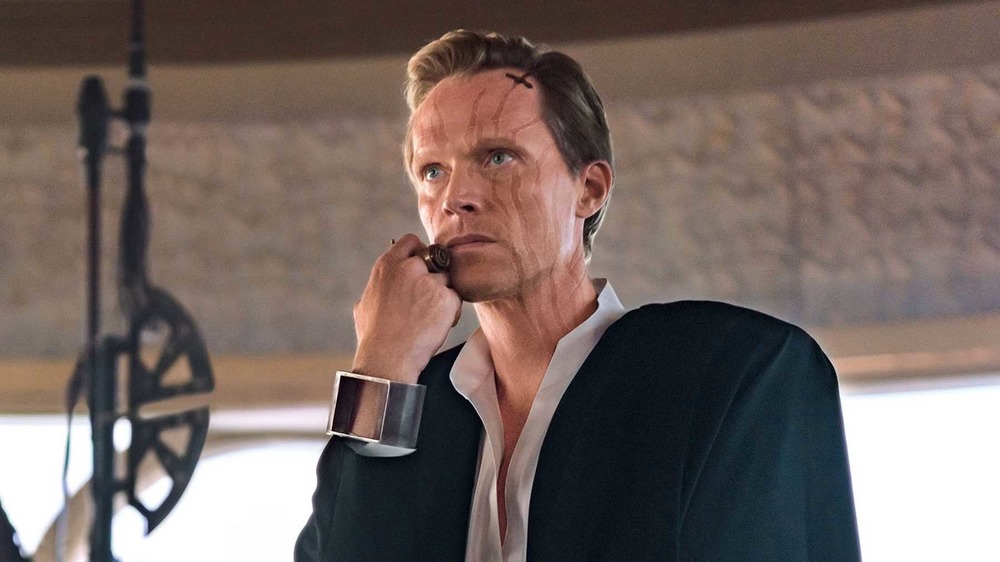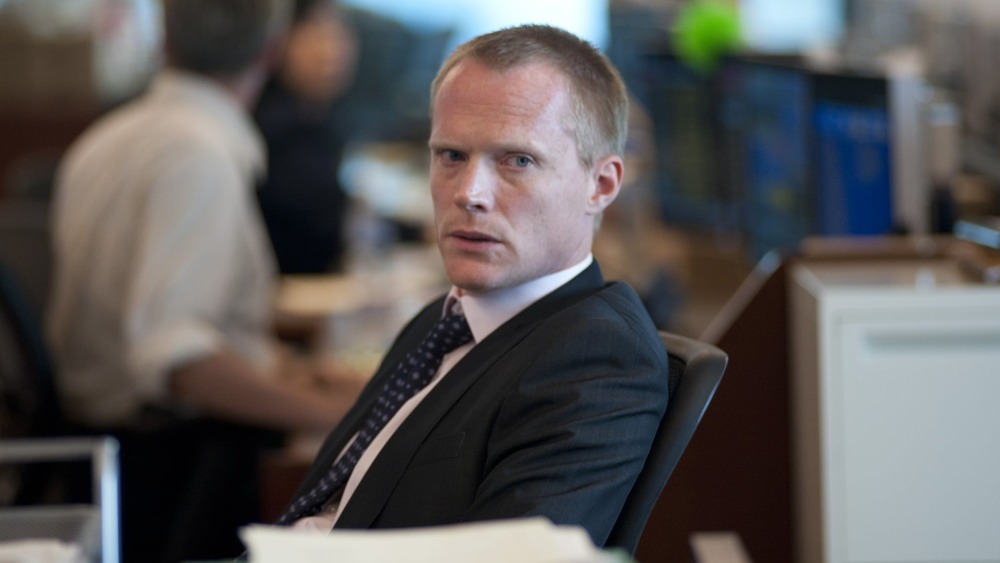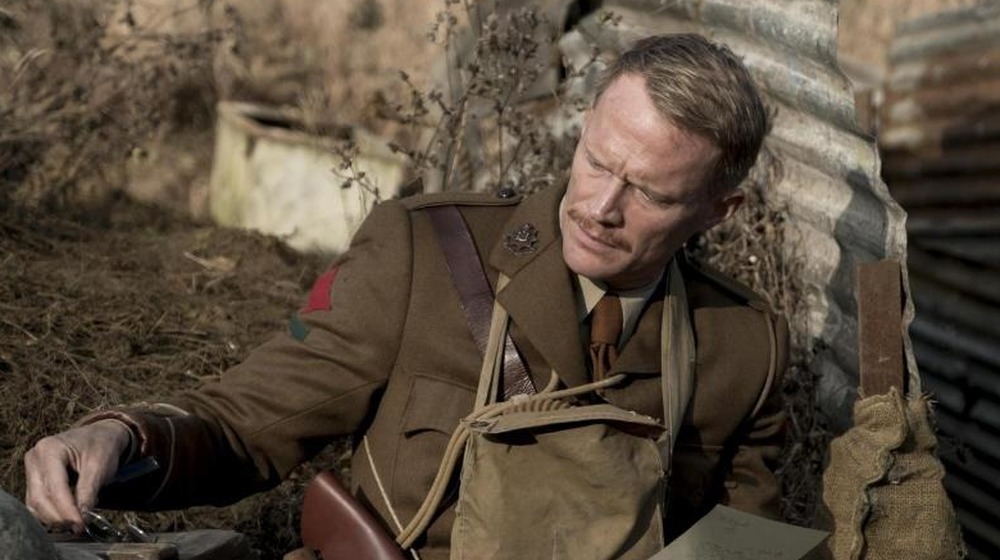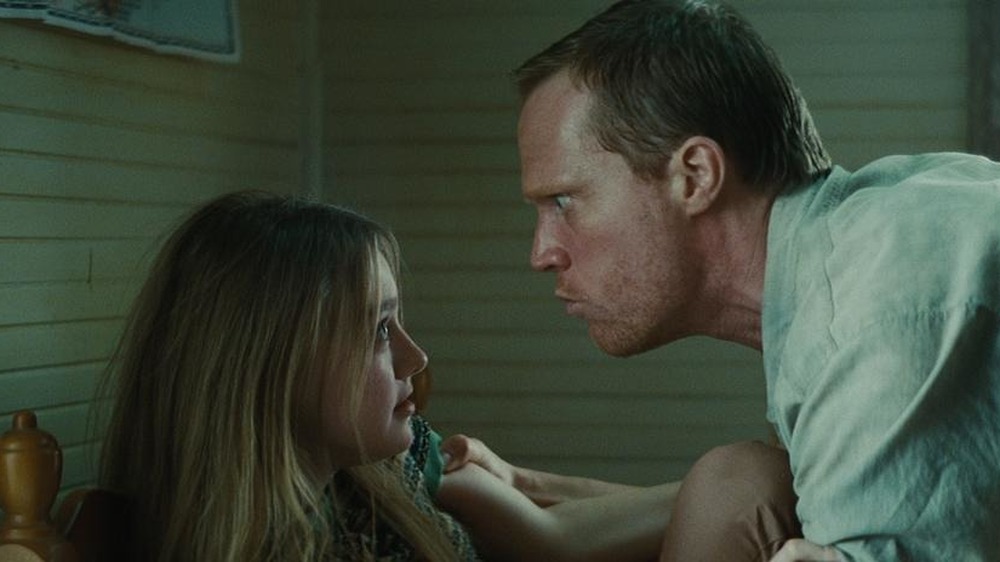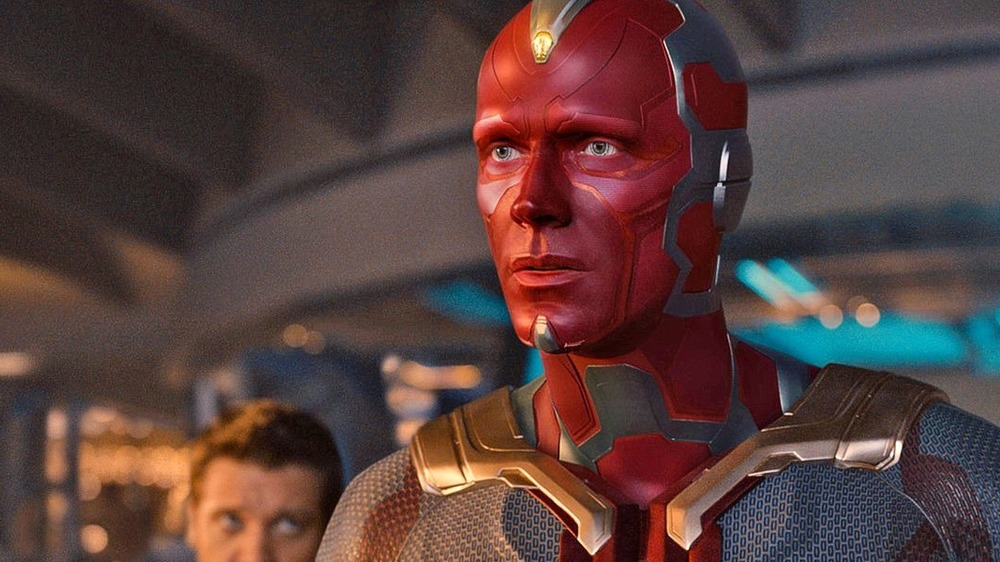Paul Bettany's Best Onscreen Performances
Before he started playing one of the most enigmatic Avengers in the Marvel Cinematic Universe, Paul Bettany was perhaps best known as the supporting character in all of your favorite movies.
Whether he's giving a subtle performance as the best friend to John Nash, stealing the scene from a young Heath Ledger, or wreaking havoc on Ultron's robot army, Bettany is always acutely aware of what kind of movie he's in and, like any good actor, figuring out how he can make the project that much better through wit and just enough heart.
You don't get to join the roster of heroes that make up the MCU without having a lot of charm and charisma, and you certainly don't get there without a swath of impressive work at your back. Coming from humble beginnings, Bettany began his performing career as a street busker before making his way into acting school, the theater, and then onto the TV and movie screens where fans know and love him today. He's a performer who clawed his way into people's hearts without permission through sheer talent and exquisite role selection, leaving some of the most subtle performances in his wake.
Sure, not all of his roles are particularly memorable, large, or even noteworthy. However, one thing is always true when you're watching Bettany act — he's giving it his all. As his popularity continues to skyrocket, it's worth taking a look back at some of the better performances that got him where he is.
Master and Commander
When looking back at this 2003 Oscar-nominated period drama, almost all the promotional material and cover art is synonymous with Russell Crowe. In fact, some may even be surprised to hear that Bettany was even in the movie. However, that's the perfect showcase of Bettany's talent: He positions himself not as number one on the call sheet, but as a subtle performer driving the plot to new heights.
That's exactly what he does in Master and Commander: The Far Side of the World. In his second collaboration with Russell Crowe, Bettany plays the ship's doctor, Stephen Maturin, an academic on a ship full of naval soldiers and wartime thinkers. While it would be easy to simply play a soft and befuddled sidekick, Bettany finds moments to bring an intensity to the character that somehow makes him an equal to Crowe's gruff and hardened captain.
The movie requires the two of them to both bond and disagree vehemently. What comes through in the end is Bettany's ability to take a lower-status character and somehow make him an equal capable of stealing the show. A particularly intense moment comes when he has to perform surgery on himself. A lesser actor would use this as an excuse to show how well they can demonstrate pain. Bettany, however, takes things in a different direction and finds a way to demonstrate how strong his character actually is (while still showcasing quite a lot of pain).
A Knight's Tale
Bettany hadn't done a lot, particularly in the U.S., prior to his breakout role opposite Heath Ledger in the 2001 movie A Knight's Tale. Perfectly melding the 14th-century European Renaissance with a modern-day rock 'n' roll attitude, Bettany finds the exact rhythm the film was shooting for as real-life author Geoffrey Chaucer.
When a young peasant decides to impersonate a noble in order to compete at jousting tournaments, Chaucer agrees to forge his documents and even be his hype man. His first scene sees him destitute and completely naked. By the end of the movie, however, he's clothed in the adoration of his cohorts as well as the audience.
Bettany's Chaucer is given some of the best comedic lines and most rousing speeches, which he delivers with the soul and gravitas of a much more seasoned actor. While the movie is beloved amongst its fans, at no point was it gunning for awards, and Bettany's performance makes it clear that he knows this.
While an actor with his theater background, which included some Shakespeare, could have easily fallen into the flowery Renaissance aspect of the movie, Bettany is clever and leans much more heavily into the rock 'n' roll aspect of the project. It's a perfect example of the actor not vying for attention as much as he's serving his character and the movie overall. He doesn't try to steal the show, he simply brings his all and maintains an understanding of the project — and the show ends up stolen anyway.
A Beautiful Mind
This 2001 Oscar-winning film sees Russell Crowe take on the role of real-life mathematician John Nash to tell his harrowing story. For those unfamiliar, Nash was a brilliant mind who suffered from schizophrenia that went undiagnosed for years and therefore allowed him to develop deep personal and professional relationships with people who only existed in his imagination.
One of those people was his college roommate, Charles, played by Paul Bettany. Nash is a man who is too in his head, so Charles comes along to embody the character's sense of id. He arrives at key points of Nash's life to show the emotion that the math genius is incapable of outwardly showing himself. The role allows Bettany to be a fun-loving free spirit and an inspirational voice. However, as Nash's perception of his sickness turns, it also allows the actor to showcase some menacing qualities as well as profound sadness. While Crowe was nominated for an Academy Award that year, it's Bettany who's doing a lot of the emotional heavy lifting for his character — and therefore the movie.
Manhunt
While it doesn't mark the first time Paul Bettany played a character plucked directly from real life, his role in the eight-part Discovery miniseries Manhunt is by far his most in-depth and ambitious.
Bettany portrays the very complicated and very grim Ted Kaczynski. For those unfamiliar, Kaczynski, better known as the infamous Unabomber, terrorized the United States with a string of bombings that left 23 people injured and three dead. While playing the part of any real-life serial killer is a challenge, Kaczynski is a particularly difficult man to understand given his brilliant mind, stark turn toward villainy, and the fact that most of what is known about him comes from a pretty bonkers political manifesto.
Bettany, however, is undeterred. Abandoning his British accent, the actor finds a way to capture what makes the character so complex without actually being overt or reducing his performance to mere wall-bumping madness. As the Hollywood Reporter notes in its review of Manhunt, Bettany captures the very measured approach that Kaczynski took to life — and Bettany took to the role.
When you strip away the makeup, hair and voice, the critic notes that Bettany's eyes are what really do the walking for the character, noting that they "reveal a man in a constant state of deliberation."
Like a good actor, Bettany is thinking about every choice. While that makes for a great portrayal of Kaczynski, it also makes one wonder about the dedication and forethought that went into the Unabomber's crimes.
Wimbledon
The 2004 film Wimbledon is somewhat of an outlier in Paul Bettany's career. He's a man who shines while playing supporting characters and finds moments to turn complicated figures into relatable, albeit off-color, heroes. That's why it was surprising to see him take a foray into leading man roles in this otherwise generic romantic comedy.
Bettany plays Peter Colt, a British professional tennis player who is rapidly losing his former glory. That is, however, until he bumps into a young U.S. female tennis pro, who he begins a whirlwind romance with at the big event. Armed with nothing but her love, he starts to shine once again in the tennis world, but what's a positive change for him impacts her game for the worse.
The story is a classic rom-com about a man overcoming his own selfishness and learning to love just in time for everyone to get what they want. While many of the reviews of the film mention the tired genre tropes, quite a few also take the time to praise Bettany's charm and charisma. Sure he doesn't have the typical looks that make a leading man such a heartthrob, but that's what makes Wimbledon stand out. He doesn't portray someone you want to love just by seeing him. Bettany's character wins over the audience and — his love interest — by simply being someone worth loving.
Solo: A Star Wars Story
While the movie didn't receive top marks from Star Wars fans and Paul Bettany's part is somewhat small, his character looms large over the events of Solo: A Star Wars Story.
For most of his career, Bettany has played some version of a good guy. That's why it felt like such a bold choice to see him change things up and assume the role of a through-and-through villain in the Star Wars universe: Dryden Vos, a high-ranking crime boss in the Crimson Dawn syndicate. Han Solo lives in a world of backstabbers, cutthroats and double-crossers, so a head honcho who has managed to climb to the top of such rabble is a surprisingly complicated figure to bring to life.
Bettany's Vos is ever-present, even when he's not onscreen, pulling strings and orchestrating betrayals. However, when he actually is onscreen, his main purpose is to simply be the most menacing one in the room. He fluctuates from jovial to quiet and back again on a dime. There's really no telling what his character is thinking or planning to do next, which makes every moment the heroes are in a room with him more tense than the last.
That's not an easy feat to pull off in a movie where the audience knows that the main characters definitely live through whatever happens to them. Still, for a franchise that has often relied on dark wizards for its main baddies, Bettany paved the way for more grounded characters in the Star Wars universe.
Margin Call
Paul Bettany is a small cog in Margin Call's ensemble cast, but like any good actor, he manages to find his moments and becomes one of the breakout characters in a movie that's filled to the brim with complicated figures and dynamic speeches.
The film focuses on a financial company that realizes it needs to make some pretty morally questionable decisions on Wall Street in order to stay afloat. While most of the characters grapple with the pros and cons of what they're doing, Bettany's Will Emerson represents the people who are willing to do the smart thing and cover themselves at the expense of others.
While the character could play as just another smarmy Wall Street guy, Emerson gets a chance to explain why exactly he doesn't have trouble sleeping at night. He issues a harsh rebuke of the financial system in general, noting that everyone claims to care about the common person, but the reality is that the common person needs someone like him pulling the financial strings and making sure that the world isn't as fair as people claim to want it to be. He is the line that stands between people having enough now with the promise of more later versus simply never having enough — and his one monologue turns Margin Call from a simple everyman vs. tycoons story into a complicated human drama about the morality of finance.
Journey's End
Paul Bettany is the perfect choice to join this very subtle war drama, which is an adaptation of a play by war veteran R.C. Sheriff that originally premiered in 1928, making the World War I story more contemporary at the time.
The movie tells the story of a group of British soldiers stuck in the trenches of the European theater of the war. However, the film doesn't really focus on the conflict. The particular trench that the characters bond in is not of any real strategic value. Instead, the movie is more a glimpse at the camaraderie that develops between a group of men who are forced to live under tense conditions, grappling with their own mortality.
Bettany plays Lieutenant Osborne, an older gentlemanly and more bookish type than the very young soldiers under his command. Like them, he knows that this is likely his last station assignment in a war that's dragged on several years. The role allows Bettany to bring a sort of wisdom to the film that reels in the characters' perspective. Sure, they're all still going to die, but Bettany's character is the one who ensures that their lives don't go unexamined, destined to fall into obscurity as just another nameless group of soldiers mentioned at war memorials.
Osborne is there to bring meaning to the situation in real time and help the characters understand their fate in a way that allows the conflict to get out of the way in favor of the personal bonds that make the movie.
The Secret Life of Bees
For a movie that's mostly about the immense struggles the Black community has faced throughout American history, particularly in the time of segregation, Paul Bettany's child-abusing character in The Secret Life of Bees has an odd resonance in a film that's full of very difficult moments to watch.
The film focuses on a young girl who is forced to leave her abusive father, played by Bettany, and is only able to find a home within the Black community. Thanks to Bettany's performance as an overbearing, alcoholic southern man, the young girl's experience with her own authority figure gives her an idea of what the Black people she befriends have to deal with from society at large — albeit on a significantly smaller scale.
Once again, this is a classic example of Bettany finding a way to take what could otherwise be a very boring, one-note character and turning it into an opportunity to showcase the complexity of the human experience. For better or worse, he explores the dark side of power dynamics and how they end up applying incredibly negatively to the Black experience in the United States.
In the end, he shows a bit of his own humanity when he reveals that the reason he's so abusive is that he's carrying a lot of rejection from his child's mother, who returned to their life before her death not for him, but for their daughter.
The Marvel Cinematic Universe
It's unfortunate that after such a long career of embodying a wide variety of different characters, Paul Bettany will perhaps always be most widely known for his role as the synthezoid artificial being known as Vision.
Of course, before he was seen in the Marvel Cinematic Universe, he was heard — Bettany started out as the voice of Tony Stark's artificial intelligence assistant JARVIS in the franchise's first film, Iron Man. It wasn't until Avengers: Age of Ultron that JARVIS became the personality embedded in Vision, bringing him to life in his own body and beginning his journey as one of the Avengers' most powerful players.
The character could be just another talking robot in a franchise filled to the brim with sentient tech. However, Bettany's work in the role allows Vision to be something more. By the nature of what he is, he comes equipped with a wealth of knowledge about the world and humanity in general. In fact, the first thing he has to do as a sentient being is determine that he loves human beings enough to fight for them.
Bettany approaches the role never forgetting how much knowledge the character has, but also clearly conveying his lack of wisdom. Vision approaches every situation with a sense of childlike wonder and curiosity. Like Pinocchio trying food for the first time, he understands the human machinations behind everything around him, but is experiencing most of it for the first time in his own body.
From his heroics — and ultimate death — in the Avengers franchise to his subsequent revival in WandaVision, Bettany's Vision has added a deeply soulful component to the MCU through his portrayal of a being whose synthetic structure doesn't deprive him of his essential humanity.

